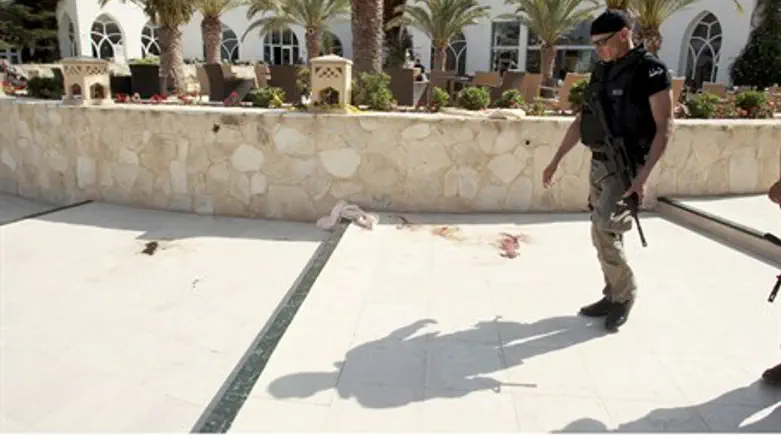
The student who carried out Friday’s terrorist attack on a Tunisian beach acted alone during the attack but had accomplices who supported him beforehand, an Interior Ministry official said Sunday, according to The Associated Press (AP).
Police were searching nationwide for more suspects after the slaughter of at least 38 people in Sousse on Friday, in Tunisia’s deadliest ever such attack.
The attacker’s father and three roommates were detained and being questioned in the capital, Tunis, Interior Ministry spokesman Mohamed Ali Aroui told AP.
The attacker has been identified as Seifeddine Rezgui, a 24-year-old graduate of Tunisia’s Kairouan University where he had been living with the other students. The attack was claimed by the Islamic State (ISIS) group.
“We are sure that others helped, but did not participate,” Aroui told AP on Sunday. “They participated indirectly.”
Investigators believe the suspected accomplices provided the Kalashnikov assault rifle to Rezgui and helped him get to the scene, he added.
A security official close to the investigation said the student frequented an “unofficial” mosque in the Tunisian holy city of Kairouan for the past two years.
The official said a swimmer had found the attacker’s cellphone in the Mediterranean. The phone showed the attacker spoke with his father just before his assault, the official said on condition of anonymity because he wasn’t authorized to speak publicly.
Friday’s attack was one of three attacks that took place in France, Tunisia and Kuwait. In France, a Muslim terrorist decapitated one man and injured several others in an attack on a French gas company. In Kuwait, a suicide bomber struck a Shiite mosque and killed at least 10 people.
At least 15 Britons were among the 38 killed in the Tunisia attack, and Britain’s Foreign Secretary Philip Hammond said it was highly likely that “a significant number” of the victims yet to be identified would be British.
Britain has deployed senior detectives and forensic teams to Tunisia, noted AP.
The attacks occurred during the Islamic holy month of Ramadan and ISIS group had urged its followers to step up attacks during the fasting month against Christians, Shiites and Sunni Muslims fighting with a U.S.-led coalition against the group.
But the State Department said there was no evidence so far that the three attacks were coordinated.
"I don’t believe investigators are at a level now that they know precisely what motivated each one of these and the degree to which Ramadan itself was a factor," spokesman John Kirby said.